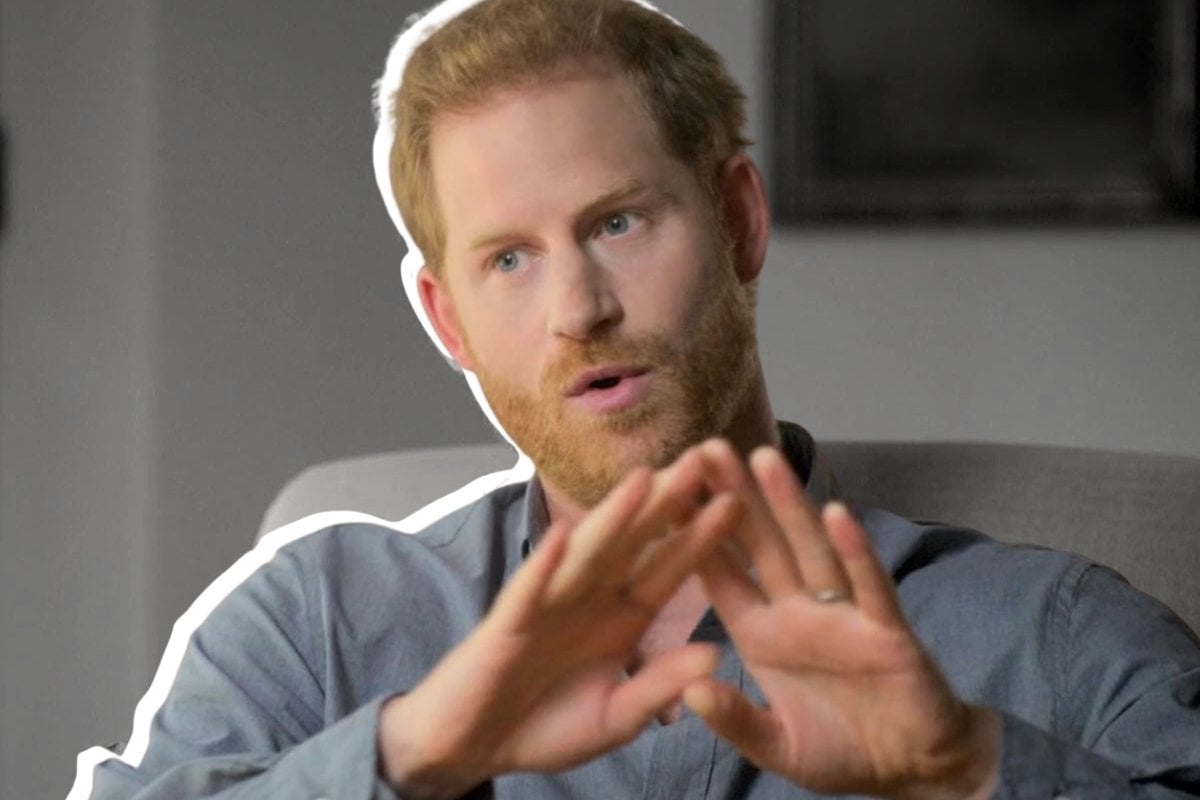
This post deals with mental health and might be triggering for some readers.
A moment of silence for comment moderators.
They've been sifting their way through an especially divisive year of content, what with pandemic-related policies, political scandal, and reignited geopolitical conflicts.
Then, out of nowhere, comes a surprise inclusion: Prince Harry goes on the telly to explain why he and his wife, Meghan, Duchess of Sussex, ditched their royal duties and started their new Californian existence (replete with rescue chickens and walks on the beach).
Watch: 'The Me You Can't See' features Prince Harry among its many stories of mental health.
Believe it or not, it's become one of the most engaged-with news stories of 2021 so far.
Comments on online articles and social media are thick with debate about the virtues of the royal's decision to regale his experience for the cameras. Three times. The first being a light-touch interview on The Late, Late Show with James Cordon; the second, the March tell-all with Oprah Winfrey; and now, the recently released Apple TV mental health documentary series, The Me You Can't See on which he and Winfrey serve as executive producers.
Across the two programs, Harry spoke about some of the key challenges he faced across his life as a working royal: the trauma caused by the 1997 death of his mother, Princess Diana; his struggles with unresolved mental health conditions (which he said manifested as drug and alcohol abuse, anger, anxiety during public events, and more); his helplessness in the face of the tabloid media's pursual of his mother and wife; and the lack of support he and Meghan received from the palace and his family when she told them she was suicidal.


Top Comments